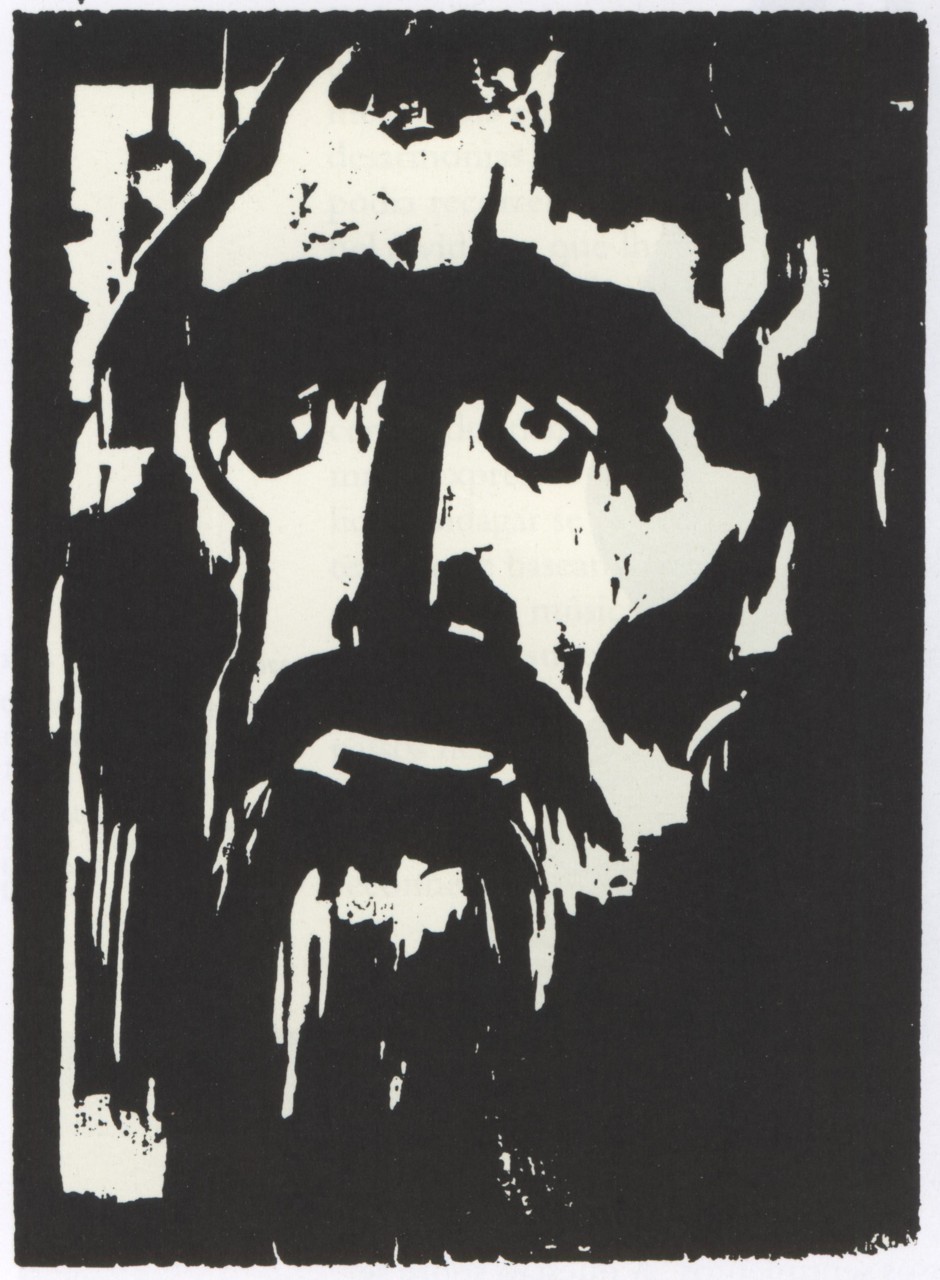The Work of
Art in Mechanical Reproduction
In Principle a
work of art has always been reproducible.
Man-made artifacts could always be imitated by men. Replicas were made by pupils in practice of
their craft, by masters for diffusing their works, and, finally, by third
parties in the pursuit of gain.
Mechanical reproduction of a work of art, however, represents something
new. Historically, it advanced
intermittently and in leaps at long intervals, but with accelerated
intensity. The Greeks knew only tow
procedures of technically reproducing works of art: founding and stamping. Bronzes, terra cottas, and coins were the
only art works which they could produce in quantity. All others were unique and could not be
mechanically reproduced. With the
woodcut graphic art became mechanically reproducible for the first time, long
before script became reproducible by print.
The enormous changes which printing, the mechanical reproduction of
writing, has brought about in literature are a familiar story. However, within the phenomenon which we are
here examining from the perspective of world history, print is merely a
special, though particularly important, case.
During the Middle Ages engraving and etching were added to the woodcut;
at the beginning of the nineteenth century lithography made its appearance.
With lithography the technique of reproduction reached an essentially new
stage. This much more direct process was
distinguished by the tracing of the design on a stone rather than its incision
on a block of wood or its etching on a copperplate and permitted graphic art
for the first time to put its products on the market, not only in large numbers
as hitherto, but also in daily changing forms.
Lithography enabled graphic art to illustrate everyday life, and it began
to keep pace with printing. But only a
few decades after its invention, lithography was surpassed by photography. For the first time in the process of
pictorial reproduction, photography freed the hand of the most important
artistic functions which henceforth devolved only upon the eye looking into a
lens. Since the eye perceives more
swiftly than the land can draw, the process of pictorial reproduction was
accelerated so enormously that it could keep pace with speech. A film operator
shooting a scene in the studio captures the images at the speed of an actor’s
speech. Just as lithography virtually
implied the illustrated newspaper, so did photography foreshadow the sound
film. The technical reproduction of sound
was tackled at the end of the last century.
These convergent endeavors made predictable a situation which Paul
Valery pointed up in this sentence:
“Just as
water, gas, and electricity are brought into our houses from far off to satisfy
our needs in response to a minimal effort, so we shall be supplied with visual
or auditory images, which will appear and disappear at a simple movement of the
hand, hardly more than a sign.”
Around 1900
technical reproduction had reached a standard that not only permitted it to
reproduce all transmitted works of art and thus to cause the most profound
change in their impact upon the public; it also had captured a place of its own
among the artistic processes. For the
study of this standard nothing is more revealing than the nature of the
repercussions that these two different manifestations – the reproduction of
works of art and the art of the film – have had in its traditional form.
Work of art can be
recreated and has always been done through imitation. Pupils are able to make exact copies of arts
so that they practice their craft either to spread their works or for the
pursuant of profits. Mechanical
reproduction created a new stage in reproduction. As new technology emerges, the production of
art increased with intensity. Two procedures
of reproducing technically among the Greeks were founding and stamping
producing coins, bronzes and terra cottas.
Mechanical reproduction brought changes to printing. Engraving and etching were added to wood cut. Lithography which allows volumes of documents
to be printed was effective. Later,
designs were traced on stone rather than on wood. Photography took over from lithography and
pictures were used. It has been able to
place the image in a way that would allows for the original image to be seen
clearer. This lessened the work of
artists. Mechanical reproduction has
enabled sound to be introduced. According
to Paul Valery, visual and auditory image were understood more clearly and
technical reproduction is now able to ‘stand on its own’.
I have chosen this
passage because it has helped me to see the improvements that have been made in
reproduction. The new technologies that
were introduced have led to increase speed in production especially in the
printing and film industries. My
knowledge of mechanical reproduction has increased as it enables me to see why
literature is so quickly distributed.
All as a result of mechanical reproduction


.jpg)